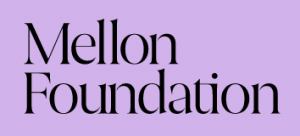Princeton-Mellon Initiative in Architecture, Urbanism, and the Humanities Fellowships

The Princeton-Mellon Initiative in Architecture, Urbanism, and the Humanities is an interdisciplinary program supported by the Andrew W. Mellon Foundation that combines the efforts of a diverse group of faculty, programs, and schools to develop a dynamic understanding of urban issues past, present, and future. Its theme, Cities on the Edge, encompass several interrelated concepts, including the juncture of built/natural environmental studies, center/periphery, hemispheric comparatives, migration, New Jersey urbanism, social justice, the humanities as a force of change, and the margin as a place of radical possibility. Additional information about the Princeton-Mellon's themes and program may be found at https://arc-hum.princeton.edu/.
We seek to hire Mellon Fellows with an abiding interest in multi-disciplinary work focused on the intersection of architecture, urbanism, and the humanities. Candidates can come from any discipline. They may be academics, designers, and/or practicing writers or artists. The individual may teach or team-teach an interdisciplinary course on some aspect of urbanism (contingent upon sufficient enrollments and approval from the Dean of the Faculty) and participate in Princeton-Mellon Initiative events.
Fields of specialization might include (but are not limited to) the humanistic dimensions of architecture, architectural history, design, urban planning, public policy, urban studies, environmental studies, science and technology studies, geography, history, philosophy, art history, material culture, politics, sociology, anthropology, literature, religion, cultural studies, queer studies, race and ethnicity studies, gender studies, performance studies, visual arts, documentary studies, photography, and creative writing. Fellows may focus on any geographic area. We particularly encourage applications from scholars whose work incorporates the themes of the Princeton-Mellon Initiative as well as the Princeton University Humanities Council. More information can be found here https://humanities.princeton.edu/.
We will accept applications from those who have earned a Ph.D. in any discipline (or those who expect to earn their doctorate before August 2024), or a terminal Master's degree in architecture, planning, or related practice discipline. Applicants must apply online and submit a cover letter, vita, 500-word description of a proposed course (uploaded under "Teaching Statement"), brief (chapter or article-length) single-authored writing sample, 1,000-word description of a research project, and contact information for three references by January 7, 2024, 11:59 pm, EST for full consideration. Letters of recommendation will be requested for a smaller group of applicants at a later date.
The Mellon Fellow will receive up to $75,000 for a 12-month appointment with an anticipated start date of on or about September 1, 2024, plus benefits. On rare occasions, appointments for less than twelve months will be considered. One need not be a U.S. citizen to apply. Appointment rank will be determined based on the applicant's qualifications at the time of appointment. This position is subject to the University's background check policy.
Those seeking a postdoctoral (or post-terminal degree) fellowship should apply to: https://www.princeton.edu/acad-positions/position/32285
Applicants seeking a visiting position (for a sabbatical year, etc.) please apply to https://puwebp.princeton.edu/AcadHire/apply/application.xhtml?listingId=32286. Typical candidates hold primary positions at other universities or colleges. In exceptional cases we consider applications from independent scholars.
For inquiries, including for which version of the job listing to use, please contact Aaron Shkuda (ashkuda@princeton.edu).

